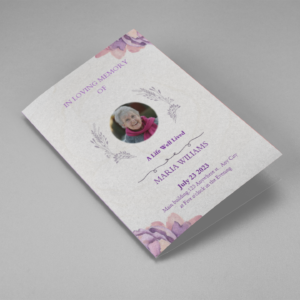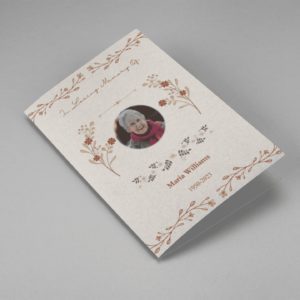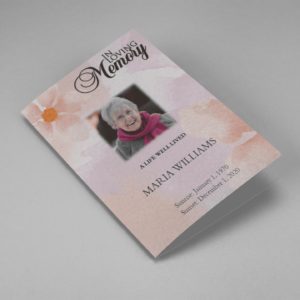Choosing the right music for a funeral can be a deeply personal and meaningful part of the ceremony. Music has the power to evoke emotions, bring back memories, and provide comfort during a difficult time. This guide will help you navigate the process of selecting music for a funeral, ensuring that it reflects the personality and preferences of the deceased, as well as the sentiments of the family and friends.
Importance of Music in Funeral Services
Music plays a crucial role in funeral services for several reasons:
- Emotional Expression: Music can express the emotions that words often fail to convey. It can offer solace and comfort to those grieving.
- Personalization: The choice of music can reflect the personality, tastes, and life of the deceased, making the service more personal and meaningful.
- Ritual and Tradition: Many cultures and religions have traditional music that is played during funeral services, providing a sense of continuity and connection with the past.
- Memory and Reflection: Music can trigger memories and allow attendees to reflect on the life and legacy of the deceased.
Factors to Consider When Selecting Funeral Music
When choosing music for a funeral, several factors should be taken into account:
Personal Preferences of the Deceased
Consider the musical tastes of the deceased. Did they have favorite songs, artists, or genres? Including music they loved can be a fitting tribute to their life and personality.
Type of Service
The type of service will influence the choice of music. A religious service may include hymns or sacred music, while a secular service might feature contemporary or classical pieces.
Cultural and Religious Traditions
Respect any cultural or religious traditions that the deceased and their family observe. Certain faiths have specific requirements or prohibitions regarding funeral music.
Audience and Atmosphere
Consider the preferences of the attendees and the desired atmosphere of the service. Some may prefer a solemn and reflective mood, while others might want a more uplifting and celebratory tone.
Live Music vs. Recorded Music
Decide whether you want live performances or recorded music. Live music can add a personal touch, while recorded music offers more control over song selection and quality.
Popular Music Choices for Funerals
Here are some popular music choices for funerals, categorized by genre:
Religious Hymns and Songs
- “Amazing Grace” – A timeless hymn that offers comfort and hope.
- “Ave Maria” – A beautiful piece often used in Catholic services.
- “The Lord’s My Shepherd” – A popular choice for Christian funerals.
Classical Music
- “Adagio for Strings” by Samuel Barber – A moving and solemn piece.
- “Canon in D” by Johann Pachelbel – A serene and uplifting choice.
- “Nimrod” from Enigma Variations by Edward Elgar – A powerful and emotional composition.
Contemporary Music
- “Hallelujah” by Leonard Cohen – A poignant and reflective song.
- “Tears in Heaven” by Eric Clapton – Written in memory of Clapton’s son, this song resonates with many grieving families.
- “Somewhere Over the Rainbow” by Israel Kamakawiwoʻole – A hopeful and soothing rendition.
Folk and Traditional Songs
- “Danny Boy” – A beloved Irish ballad often played at funerals.
- “The Parting Glass” – A traditional Scottish song of farewell.
- “Going Home” – Based on Dvořák’s “New World Symphony,” this piece is often used in funerals for its comforting message.
Creating a Balanced Funeral Music Playlist
When creating a playlist for the funeral, aim for a balance of different types of music to cater to various moments in the service:
Prelude Music
Prelude music sets the tone as guests arrive and take their seats. Choose calming and reflective pieces to create a serene atmosphere.
Processional Music
The processional marks the beginning of the service. Select a piece that is respectful and meaningful for the entrance of the family and casket.
Reflection and Meditation
Include music during moments of reflection, such as during a eulogy or moments of silence. These pieces should be gentle and contemplative.
Recessional Music
The recessional marks the conclusion of the service. You might choose a more uplifting piece to signify a sense of hope and celebration of the deceased’s life.
Postlude Music
Postlude music plays as guests leave the venue. This can be a continuation of the recessional or another calming piece to provide a peaceful ending.
Tips for Selecting Funeral Music
- Consult with the Family: Involve close family members in the selection process to ensure the music choices align with their wishes and the personality of the deceased.
- Seek Professional Advice: Funeral directors, religious leaders, and musicians can provide valuable insights and suggestions based on their experience.
- Test the Acoustics: If you’re using live music, test the venue’s acoustics beforehand to ensure the music will sound its best.
- Prepare for Emotional Reactions: Music can evoke strong emotions. Be prepared for the possibility that some pieces may be too difficult for loved ones to hear during the service.
Funeral Program Templates
-
Searching for a Oak Leaf With Gold Oval Frame Half Page Funeral Program that is easy to print and amass and has a cutting-edge look? The Oak Leaf With Gold Oval Frame Half Page Funeral Program is the Perfect decision because it measures 8.5”x 5.5”.
- No Limitation on Content, Edit anything
- Edit anytime – unlimited revisions even after purchased
- Get a printable PDF downloaded to get it printed on your own.
-
Searching for a Brown and White Classic Funeral Program Half Page Program that is easy to print and amass and has a cutting-edge look? The Brown and White Classic Funeral Program Half Page Program is the Perfect decision because it measures 8.5”x 5.5”.
- No Limitation on Content, Edit anything
- Edit anytime – unlimited revisions even after purchased
- Get a printable PDF downloaded to get it printed on your own.
-
Searching for a Purple Elegant Watercolor Half Page Funeral Program Template that is easy to print and amass and has a cutting-edge look? The Purple Elegant Watercolor Half Page Funeral Program Template is the Perfect decision because it measures 8.5”x 5.5”.
- No Limitation on Content, Edit anything
- Edit anytime – unlimited revisions even after purchased
- Get a printable PDF downloaded to get it printed on your own.
-
Searching for a Cream and Green Photo Obituary Half Page Program that is easy to print and amass and has a cutting-edge look? The Cream and Green Photo Obituary Half Page Program is the Perfect decision because it measures 8.5”x 5.5”.
- No Limitation on Content, Edit anything
- Edit anytime – unlimited revisions even after purchased
- Get a printable PDF downloaded to get it printed on your own.
-
Searching for a Cream Simple Elegant Photo Church Half Page Program that is easy to print and amass and has a cutting-edge look? The Cream Simple Elegant Photo Church Half Page Program is the Perfect decision because it measures 8.5”x 5.5”.
- No Limitation on Content, Edit anything
- Edit anytime – unlimited revisions even after purchased
- Get a printable PDF downloaded to get it printed on your own.
-
Searching for a Samovar Silver Half Page Funeral Program Template that is easy to print and amass and has a cutting-edge look? The Samovar Silver Half Page Funeral Program Template is the Perfect decision because it measures 8.5”x 5.5”.
- No Limitation on Content, Edit anything
- Edit anytime – unlimited revisions even after purchased
- Get a printable PDF downloaded to get it printed on your own.
-
Searching for an Elegant Beige Half Page Funeral Program Template that is easy to print and amass and has a cutting-edge look? The Elegant Beige Half-Page Funeral Program Template is the Perfect decision because it measures 8.5”x 5.5”.
- No Limitation on Content, Edit anything
- Edit anytime – unlimited revisions even after purchased
- Get a printable PDF downloaded to get it printed on your own.
-
Searching for a White Floral Pro Half Page Funeral Program Template that is easy to print and amass and has a cutting-edge look? White Floral Pro Half Page Funeral Program Template is the Perfect decision because it measures 8.5”x 5.5”.
- No Limitation on Content, Edit anything
- Edit anytime – unlimited revisions even after purchased
- Get a printable PDF downloaded to get it printed on your own.
-
Searching for a Grey and Burgundy Elegant Half Page Funeral Program Template that is easy to print and amass and has a cutting-edge look? Grey and Burgundy Elegant Half Page Funeral Program Template is the Perfect decision because it measures 8.5”x 5.5”.
- No Limitation on Content, Edit anything
- Edit anytime – unlimited revisions even after purchased
- Get a printable PDF downloaded to get it printed on your own.
-
Searching for a Soft Green and Grey Minimalist Floral Half Page Funeral Program Template that is easy to print and amass and has a cutting-edge look? Soft Green and Grey Minimalist Floral Half Page Funeral Program Template is the Perfect decision because it measures 8.5”x 5.5”.
- No Limitation on Content, Edit anything
- Edit anytime – unlimited revisions even after purchased
- Get a printable PDF downloaded to get it printed on your own.
-
Searching for a Gray Elegant Oval Frame Half Page Funeral Program Template that is easy to print and amass and has a cutting-edge look? Gray Elegant Oval Frame Half Page Funeral Program Template is the Perfect decision because it measures 8.5”x 5.5”.
- No Limitation on Content, Edit anything
- Edit anytime – unlimited revisions even after purchased
- Get a printable PDF downloaded to get it printed on your own.
-
Searching for a Blue Organic Minimal Half Page Funeral Program Template that is easy to print and amass and has a cutting-edge look? Blue Organic Minimal Half Page Funeral Program Template is the Perfect decision because it measures 8.5”x 5.5”.
- No Limitation on Content, Edit anything
- Edit anytime – unlimited revisions even after purchased
- Get a printable PDF downloaded to get it printed on your own.
-
Searching for a Pink and Orange Watercolour Half Page Funeral Program Template that is easy to print and amass and has a cutting-edge look? Pink and Orange Watercolour Half Page Funeral Program Template is the Perfect decision because it measures 8.5”x 5.5”.
- No Limitation on Content, Edit anything
- Edit anytime – unlimited revisions even after purchased
- Get a printable PDF downloaded to get it printed on your own.
-
Searching for a Pink Floral Paper Half Page Funeral Program Template that is easy to print and amass and has a cutting-edge look? Pink Floral Paper Half Page Funeral Program Template is the Perfect decision because it measures 8.5”x 5.5”.
- No Limitation on Content, Edit anything
- Edit anytime – unlimited revisions even after purchased
- Get a printable PDF downloaded to get it printed on your own.
Funeral Programs : Helping Videos
Frquently Asked Question On Selecting Music for Funerals
What is the best way to choose funeral music?
The best way to choose funeral music is to consider the deceased’s musical preferences, the type of service, and the cultural or religious context. Involve family members in the decision-making process to ensure the music is meaningful and appropriate.
Can we use popular songs at a funeral?
Yes, popular songs can be used at a funeral if they hold special meaning for the deceased or their family. Ensure that the lyrics and overall tone of the song are appropriate for the occasion.
Is it appropriate to have live music at a funeral?
Live music can add a personal and touching element to a funeral service. It’s a matter of personal preference and logistical feasibility. Consider the venue’s acoustics and the availability of musicians.
How many songs should we choose for the service?
The number of songs depends on the length of the service and the specific moments you want to include music. Typically, you might choose 3-5 pieces for prelude, processional, reflection, recessional, and postlude.















